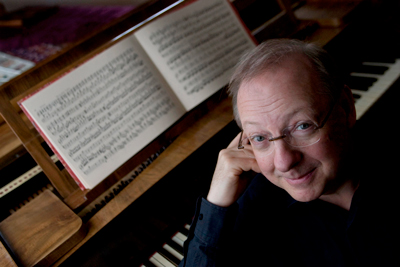by Nicholas Jones

For centuries, composers have crossed the English Channel in both directions, and this concert tapped three of them: Haydn, Benjamin, and Mendelssohn. An Austrian, Franz Josef Haydn found his most appreciative and lucrative audiences in London rather than Vienna. Londoner Arthur Benjamin wrote a charming divertimento using melodies from the German composer Christoph Willibald Gluck. And Felix Mendelssohn drew on his travels in Britain to compose his lush, evocative “Scottish” symphony — premiered in Leipzig but ostentatiously dedicated to Queen Victoria, that imperial fan of things Scottish.
London music lovers in the late 18th century were a discerning lot, and Haydn came to them with a portfolio of his best works. That included his Symphony No. 99 — full of variety, passion, and color — which opened Sunday’s program. Perhaps more serious than we often think of Haydn’s music, this E-flat major symphony constantly reminded me of Beethoven’s not-much-later Eroica, also in E flat. Like Beethoven, Haydn has a masterful sense of development, turning slight motifs into rich excursions of tension and relaxation. The piece was performed with a significantly smaller string section than usual, and the inventiveness of Haydn’s contrapuntal writing for the woodwinds came through with aching beauty.
Arthur Benjamin, an Australian-born pianist, composer, and teacher, was active in London in the first half of the 20th century. Premiered in 1952, his Divertimento on Themes of Gluck for oboe and string orchestra sounds as if it was written a half-century earlier, more late-Romantic than modern. Tunes from the late-Baroque trio sonatas of Gluck are lovingly set with eclectic inventiveness, in an idiom that is sometimes folksy, sometimes idyllic, sometimes witty, and occasionally a bit jazzy. The soloist, Assistant Principal oboe Jeffrey Rathbun, played with finesse and sensitivity. A solo woodwind can easily sound small in the wide spaces of the Blossom Pavilion, but the balance was excellent, especially when Rathbun drew on the honey-rich tones of his lower register.
Scotland — with its mountains, mists, and myths — was a popular alternative to an increasingly urbanized Germany in the mid-19th century. Mendelssohn’s fertile musical imagination took this Romantic appeal as the basis for his Symphony No. 3 in a, written over a decade after his youthful visit to Scotland. While it follows much of the prescribed form of a classical four-movement work, the “Scottish” is written without breaks between the movements, giving it the sense of an extended symphonic poem, a focused evocation of the exotic “otherness” of Scotland.
While McGegan is principally known as a skilled interpreter of Baroque music, he conducted the Mendelssohn with a thrilling Romantic intensity. The Orchestra responded with passion and enthusiasm to McGegan’s highly expressive and readable gestures — the two do not always go together. Individual lines and motifs were clearly articulated (particular kudos for the exciting clarinet solos in the second movement), while the overall feeling of the performance was a single, unified experience. It felt like what it must have been for Mendelssohn himself: the musical record of a grand journey through powerful landscapes, ocean swells, forest murmurs (premonitions of Wagner), storms, wild dancing, perhaps some witchcraft (Berlioz), all within a brooding tapestry of Romantic Scottish tragedies.
Overall, these made for an enjoyable, and at times deeply moving affirmation that — at least, as far as music is concerned — Britain’s recent Brexit vote may have been only a blip in a long-standing, across-the-channel trade agreement.
Although a number of seats in the pavilion remained empty, the lawn was nearly full — not surprising on an evening offering such lovely music. With the temperature finally a bit cooler, it was almost evocative of heather, lochs, and moorland.
Published on ClevelandClassical.com August 8, 2016.
Click here for a printable copy of this article



